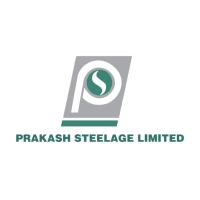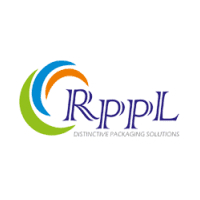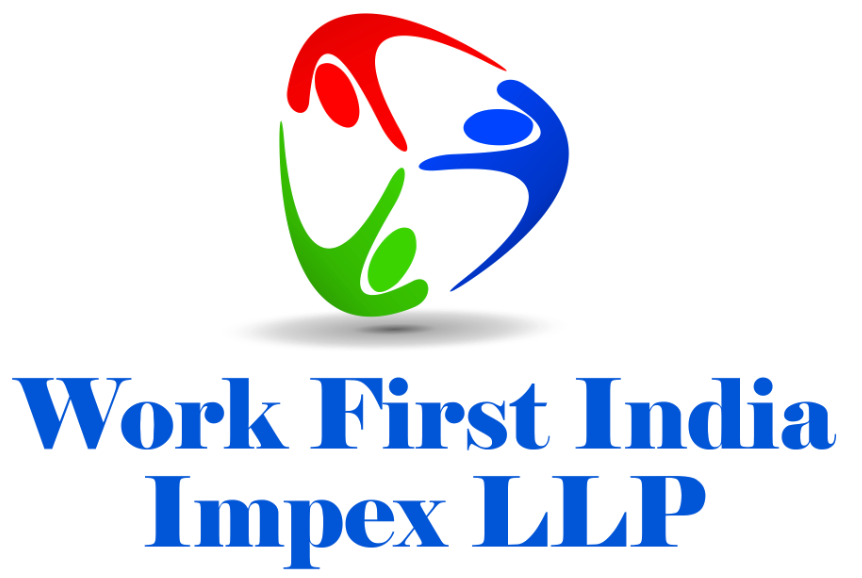India-Thailand Early Harvest Scheme Registration
GET EXPERT CONSULTATION
Introduction to India-Thailand Early Harvest Scheme (EHS) - Procedure, Documents and Fees
The India-Thailand Early Harvest Scheme (EHS) is a trade agreement that aims to strengthen trade relations between India and Thailand. It serves as a framework for reducing taxes and promoting smoother trade between the two countries. This scheme allows chosen products to enter duty-free or at lower tax rates. This helps businesses in India and Thailand trade specific goods more easily.
To take advantage of the tax benefits under the India-Thailand Free Trade Agreement (FTA), exporters must obtain the India-Thailand EHS Certificate. This certificate is important for companies that export ITEHS eligible products. It helps them get tax reductions when their goods arrive in the importing country. This document offers Indian businesses new opportunities in the Thai market. It lowers costs and helps them reach more customers.
Companies involved in international trade should understand the advantages offered by the India-Thailand FTA. These include improved trade opportunities, lower costs for sourcing materials, and stronger economic partnerships between the two nations. Exporters must apply to the right trade authority to access these benefits. They also need to show that their product meets the origin rules set by the agreement.
Below is the detailed explanation on how to apply for India-Thailand Early Harvest Scheme. By following the right steps, companies can ensure smooth trade operations and take advantage of the benefits offered by the India-Thailand Free Trade Agreement.
Table of Content
- What is India-Thailand Early Harvest Scheme (EHS)?
- Benefits of the India-Thailand EHS Certificate
- Key Products Covered Under the Early Harvest Scheme
- Registration Process for India-Thailand Early Harvest Scheme
- Documents Required for India-Thailand EHS Certificate
- IMCECPA Impact on Trade and Economy
- Fees for India-Thailand EHS Certificate
- How Professional Utilities can help?
- Conclusion
- Frequently Asked Questions (FAQs)

What is India-Thailand Early Harvest Scheme (EHS)?
The India-Thailand Early Harvest Scheme (EHS) Certificate is an important certificate that allows the exporters and importers to get the benefit of lower tax in trading between India and Thailand. It can be used to provide evidence that the traded goods are compliant with the rules of origin in the free trade agreement. By obtaining this certification, companies are privileged to benefit from the Early Harvest Scheme agreement and get to enjoy the duty-free exports of products between India and Thailand. The EHS Certificate enables trade ease and is an additional tool to improve the trading partnership between India and Thailand while making it efficient to meet the trading regulations of both the countries incorporated in the bilateral import-export agreement of India and Thailand.
Benefits of the India-Thailand EHS Certificate
The India-Thailand Early Harvest Scheme (EHS) Certificate offers several benefits for businesses and exporters looking to trade between the two countries. Here are the key advantages:
1.Tariff Reduction Benefits – The EHS Certificate for Export opens up a way of tax reduction under the India-Thailand EHS, making Indian products cheaper, which effectively increases the chances of bilateral trade in Thailand.
2.Enhanced Trade Opportunities – The Early Harvest Scheme trade advantages enable exporters to have comparatively easier access to the Thai market, as well as facilitate trading without many restrictions under the India-Thailand import-export rules.
3.Cost Savings for Exporters – Businesses will be able to take advantage of the lower overall cost of the specifically eligible items and increase their profits, which will also improve both nations’ economic growth.
4.Streamlined Customs Clearance – The EHS Certificate for Export was declared to have eased the regulations for export and import, doubling its efficiency and minimizing the time taken by India and Thailand to clear the import-export goods.
5.Competitive Market Edge – By reducing tariffs under the India-Thailand EHS, the prices of Indian goods become more competitive than the Thailand counterparts for Thai consumers and help to develop long-term business relations.
Key Products Covered Under the Early Harvest Scheme
The India-Thailand Early Harvest Scheme (EHS) covers a range of products across different sectors. Some of the major industries benefiting from the scheme include:
• Agriculture (Fruits, Vegetables, Processed Food) – Under the India-Thailand trade agreement, agricultural products enjoy duty exemption for Indian exporters, enhancing bilateral trade in fruits, vegetables, and processed foods.
• Automobile Components-India’s export incentives under the EHS promote free trade policies in India, making automobile components more competitive in ASEAN trade agreements.
• Textiles and Garments – The EHS benefits India’s textile exports, ensuring reduced tariffs through trade agreements and certifications, and strengthening trade ties between India and Thailand.
• Electronics & Machinery – The agreement fosters bilateral trade in electronics and machinery, aligning with India’s free trade policies and broader ASEAN trade agreements.
• Chemicals & Pharmaceuticals – The EHS supports duty exemption for Indian exporters, encouraging seamless trade in chemicals and pharmaceuticals under India-Thailand and ASEAN trade agreements.
Registration Process for India-Thailand Early Harvest Scheme
The India-Thailand Early Harvest Scheme (EHS) is a key component of the India-Thailand Free Trade Agreement (FTA), designed to boost bilateral trade. Below is the step-by-step process to obtain the EHS Certificate for export:
Step 1: Check Eligibility
Ensure that your product category is included in the list of products under the Early Harvest Scheme (EHS) to avail the tariff advantages of the India-Thailand FTA.
Step 2: Apply for Certificate of Origin
Apply for a Preferential Certificate of Origin (CoO) from the designated authorities, such as the DGFT or Export Inspection Council, to endorse the products for trade privileges.
Step 3: Submit Required Documents
Provide all necessary documents, such as commercial invoices, packing lists, product descriptions, and proof of origin. Ensure all documents are legal and align with EHS compliance requirements.
Step 4: Verification & Approval
The designated authority will verify the submitted application and documents. Upon successful verification, the application will be approved for certificate issuance.
Step 5: Use for Customs Clearance
Once approved, submit the EHS Certificate to the Thai customs office to take advantage
of tariff rate quotas and lower import taxes, easing the trading process.
Documents Required for India-Thailand EHS Certificate
The following documents are required for obtaining the Early Harvest Scheme (EHS) Certificate under the India-Thailand Trade Agreement :
• Commercial Invoice
• Certificate of Origin (COO)
• Packing List
• Bill of Lading / Airway Bill
• Export Declaration Form
• Supporting Documents
India-Thailand EHS Certificate Fees
The total cost for ITEHS registration is ₹6,235, which includes the government fee, registration, application, and professional charges. Here is the detailed fee structure:
| Particulars | Fees |
|---|---|
| Government Fee | ₹ 736 |
| Application Fee | ₹ 2000 |
| One time registration fee | ₹ 500 |
| Professional fee | ₹ 2,999 |
| Total cost of registration | ₹ 6,235/- only |
Note: This certificate is generally valid for one year from the date of issuance. Exporters must renew the certificate annually to continue availing benefits under the India-Thailand EHS agreement.
How Professional Utilities Can Help?
Navigating trade agreements and certifications can be complex. Professional Utilities provides expert assistance in:
• EHS Certificate Application & Approval – End-to-end support for obtaining and securing approval for your Early Harvest Scheme (EHS) certification.
• Trade Compliance Advisory – Expert guidance to ensure your business fully complies with international trade regulations and bilateral agreements.
• Export-Import Documentation – Comprehensive assistance in preparing, verifying, and managing all necessary export and import documentation for seamless transactions.
• Customs Clearance Support – Efficient handling of customs procedures, duties, and compliance to expedite your international shipments without unnecessary delays.
Conclusion
The India-Thailand Early Harvest Scheme (EHS) is a crucial trade agreement that facilitates tariff reductions and enhances trade between the two nations. By obtaining an EHS Certificate, Indian exporters can benefit from duty exemptions, cost savings, and streamlined customs clearance, making their products more competitive in the Thai market. The registration process involves verifying eligibility, obtaining a Certificate of Origin, submitting documents, and receiving approval from authorities. With key industries like agriculture, textiles, and electronics covered, the EHS Certificate offers significant trade advantages. Businesses must leverage this scheme to maximize export benefits and strengthen India-Thailand trade relations.
Why Professional Utilities?
At Professional Utilities, we leverage our industry knowledge and expertise to help businesses navigate complex regulations, minimize risks, and optimize operations for maximum efficiency and profitability.
- One Stop Corporate Solution
- Free Expert Assistance
- PAN India Services
- Google Verified Business
- Dedicated Support Staff
- Money-Back Guarantee
TRUSTED BY |






Frequently Asked Questions (FAQs)
The Early Harvest Scheme (EHS) is a trade agreement between countries to reduce tariffs on select goods before finalizing a Free Trade Agreement (FTA), boosting economic cooperation.
India and Thailand have not signed a Comprehensive Economic Partnership Agreement (CEPA), but they engage in trade under the India-Thailand Early Harvest Scheme (EHS) and the India- ASEAN FTA.
A Preferential Trade Agreement (PTA) reduces tariffs on specific goods, while a Free Trade Agreement (FTA) eliminates or significantly reduces trade barriers across multiple sectors.
India has signed FTAs with various countries, including Japan, South Korea, UAE, and Australia, to enhance bilateral trade and economic cooperation across multiple sectors.
Yes, small and medium enterprises (SMEs) can apply for the India-Thailand EHS Certificate, as long as their products fall under the eligible categories outlined in the Early Harvest Scheme. The certificate allows businesses of all sizes to benefit from reduced tariffs and enhanced market access.
The EHS Certificate is typically valid for the duration of a specific shipment’s customs clearance process. It is not valid indefinitely, and businesses must apply for a new certificate for each shipment they wish to export under the Early Harvest Scheme.
If your product is not listed under the Early Harvest Scheme (EHS), you will not be able to access the reduced tariff rates provided by the scheme. However, you can explore other trade agreements or certifications that might be applicable, such as the broader India-ASEAN Free Trade Agreement (FTA).
To apply for the India-Thailand EHS Certificate, businesses must register with the relevant authorities in India and Thailand and submit the necessary documentation regarding the product’s eligibility under the scheme. This includes providing export/import details, product specifications, and proof of origin.
